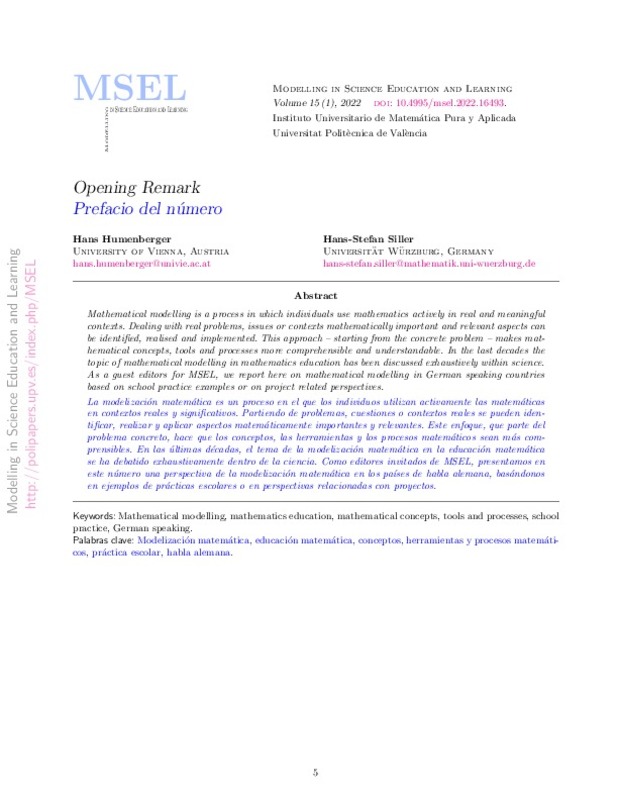JavaScript is disabled for your browser. Some features of this site may not work without it.
Buscar en RiuNet
Listar
Mi cuenta
Estadísticas
Ayuda RiuNet
Admin. UPV
Opening Remark
Mostrar el registro completo del ítem
Humenberger, H.; Siller, H. (2022). Opening Remark. Modelling in Science Education and Learning. 15(1):5-8. https://doi.org/10.4995/msel.2022.16493
Por favor, use este identificador para citar o enlazar este ítem: http://hdl.handle.net/10251/180414
Ficheros en el ítem
Metadatos del ítem
| Título: | Opening Remark | |
| Otro titulo: |
|
|
| Autor: | Humenberger, Hans Siller, Hans-Stefan | |
| Fecha difusión: |
|
|
| Resumen: |
[EN] Mathematical modelling is a process in which individuals use mathematics actively in real and meaningful contexts. Dealing with real problems, issues or contexts mathematically important and relevant aspects can be ...[+]
[ES] La modelización matemática es un proceso en el que los individuos utilizan activamente las matemáticas en contextos reales y significativos. Partiendo de problemas, cuestiones o contextos reales se pueden identificar, ...[+]
|
|
| Palabras clave: |
|
|
| Derechos de uso: | Reconocimiento - No comercial (by-nc) | |
| Fuente: |
|
|
| DOI: |
|
|
| Editorial: |
|
|
| Versión del editor: | https://doi.org/10.4995/msel.2022.16493 | |
| Tipo: |
|








